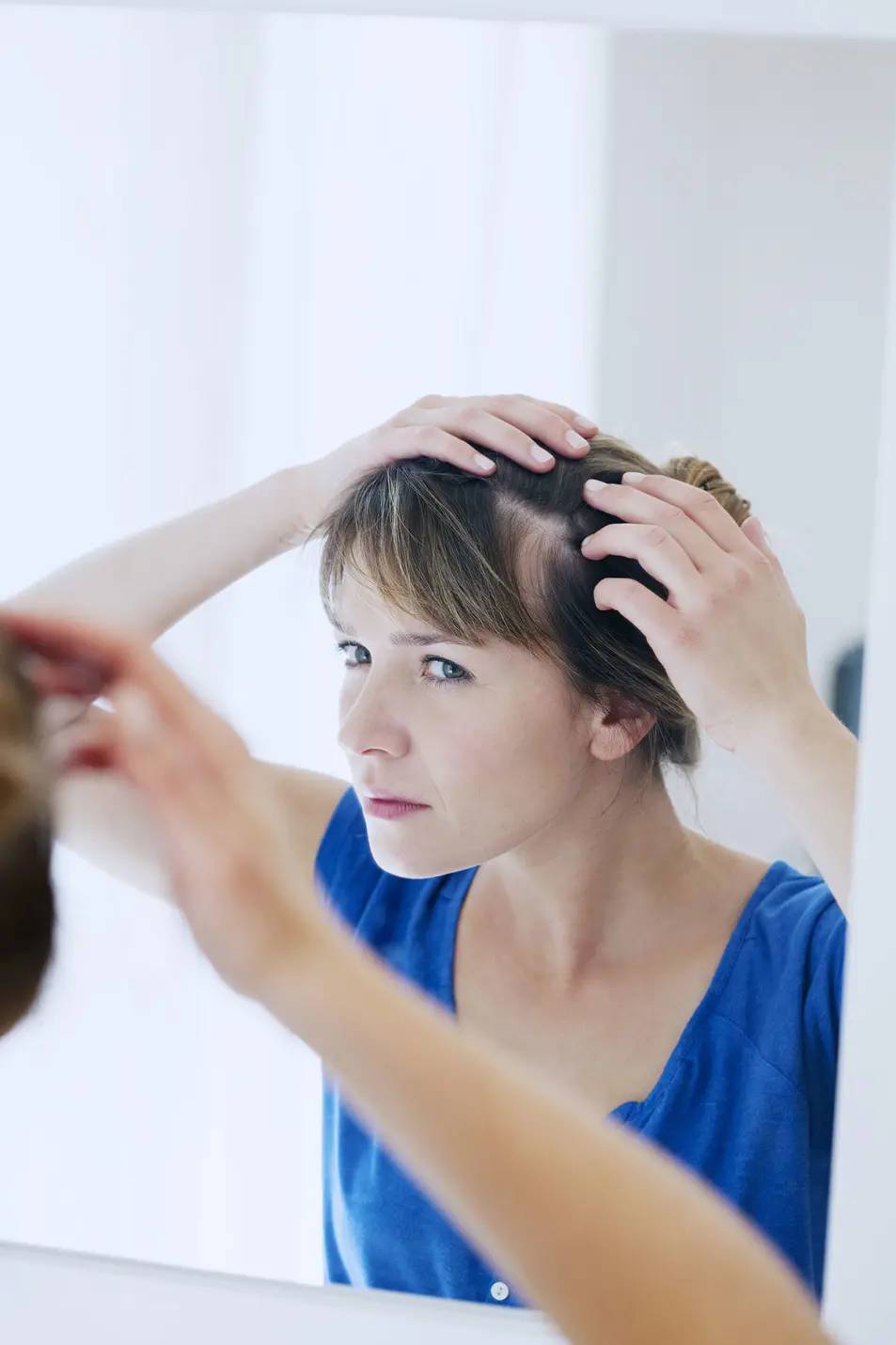Here’s how to deal with a sore scalp
** A sore scalp can be the cause of great discomfort. Learn how to identify the symptoms of a sore scalp and treat it with the help of our expert tips and advice. **

1. What causes scalp pain?
2. Other causes of scalp pain
3. Symptoms of a sore scalp
4. How to treat sore scalp?
Toddlers complaining of ‘hair pain’ after a brief session of hair pulling, and the ruckus that ensues, is quite normal. However, when adults experience similar pain sans the exciting activities, it’s a sign that your scalp needs immediate attention. Hair pain is real and literally has its “roots” in the scalp. If you thought you had enough on your plate with hair care issues, ranging from the occasional dandruff to flaky scalp, think again. A sore scalp is the harbinger of similar hair problems, and if left untreated it can worsen these conditions.
When the top of your head is sore to touch, it becomes difficult to even touch your hair, forget combing it. So, what do you do in case of a sore scalp? There are some effective sore scalp treatments that can offer you the much-need relief, but before we dive in any further, let’s look at what causes scalp pain in the first place.
What causes scalp pain?
There are numerous causes of scalp pain, ranging from dandruff to infestations. Let’s look at the potential causes of scalp pain before we move on to finding the right treatments.
-
Skin disorders
Certain skin disorders like dermatitis can cause skin inflammation. At times, the condition even escalates causing crusts, itchy rashes, flakes, swollen skin, and blisters. This skin condition mostly occurs when you encounter common things, such as:
-
Certain metals
-
Pollution
-
Certain soaps
-
Poison Ivy
-
Certain laundry detergents
-
Certain hair products
-
Some cosmetics
-
Infestations
Sometimes, what appears as dandruff or flakes can be lice. And as icky as it sounds, lice infestations are also known to cause scalp pain. It can cause severe itching or red bumps that can turn into crusts or ooze. If this happens, you’ll need immediate medical attention. Another factor that makes lice infestations quite formidable is that it is highly contagious and can live up to 30 days on your scalp or body. Want more bad news? Lice eggs live longer!
-
Infections
Infections of hair follicles such as folliculitis, furunculosis, and carbunculosis can cause scalp sensitivity.These infections can cause a great deal of pain as well. Plus, the affected area is sore or warm to touch. And infections like tinea capitis and tinea versicolour can also affect children and cause *hair loss.
-
Headaches
You might be familiar with tension headaches. In addition to making you uneasy, these tension headaches also cause scalp pain. Anxiety, stress, or depression can worsen the symptoms and make your muscles tense.
-
Temporal arteritis
Temporal arteritis is a condition that gives rise to symptoms such as scalp pain, soreness in the jaw, headaches, and visual disturbances. The temporal artery is a blood vessel that runs on the side of your head, in front of the ear. In this condition, it becomes inflamed and tender to touch and causes headaches that you feel in the temples and scalp.
Other causes of scalp pain
In addition to these above-mentioned causes, certain other factors also contribute to scalp pain like:
- Cold
- Heat
- Wind
- Sunburn
Symptoms of a sore scalp
Identifying the symptoms of a sore scalp can help you take prompt measures. The major symptoms of a sore scalp include:
- Pain
- Inflammation
- Irritation
- Itching
- Throbbing
- Numbness
- Sensitive scalp
Sometimes, there are no visible symptoms, but scalp pain can become evident if it involves flaking, peeling, and scaling of the skin. At times, a sore scalp is a symptom of other conditions like headaches, allergies, psoriasis, hair loss, and eczema.
How to treat sore scalp?
If the top of the head is sore to touch, it’s time that you try and find the right sore scalp treatment. Since there are several techniques to relieve a sore scalp, you need to find a solution that will offer you immediate relief. Let’s look at the best sore scalp treatments.
-
Let your hair rest
As tempting as it is to try out different hairstyles, give your hair rest sometimes. Tight or high ponytails, buns, braids, updos, and cornrows can pull or even damage your follicles and cause intense scalp pain. So, refrain from trying out different hairstyles when you experience an onset of scalp pain.
-
Wash your hair well
If you don’t wash your hair for a while, the oil in your scalp tends to accumulate around your hair shaft, promoting the overgrowth of yeast on the scalp. This can cause seborrhoeic dermatitis, a flaking condition that eventually leads to inflammation. However, do not go overboard while washing your hair as it can throw your pH level off balance.
-
Invest in the right hair products
There are various hair products that are created to help you deal with a sore scalp. So, find the right hair product that offers you immediate relief from the intense scalp pain. Enter Head & Shoulders hair products that are designed to soothe your scalp and give you relief from any scalp-related issue.
The Head & Shoulders Clinically Proven Solutions Scalp Relief Shampoo is created using selenium sulphide that targets the cause of severe dandruff. Moreover, this shampoo is clinically proven to control itching and flaking. This clinically proven shampoo fights flakes, dryness, and tight scalp. The gentle formula is ideal for everyday use and leaves your hair smelling great. The moisturizers nourish your hair and give you healthy-looking hair.
If your sore scalp is caused by severe dandruff, Head & Shoulders Clinically Proven Solutions Anti-Dandruff Shampoo is here to save the day. The new selenium sulphide dandruff shampoo is tough on flakes, but gentle on your hair. It moisturises your tresses and leaves them feeling fresh, soft, and healthy looking.
A sore scalp will be the least of your problems if you act immediately after noticing the first symptoms surfacing. Your scalp needs equal attention as your hair because a healthy scalp is the route to strong, healthy hair.
*All references on this page refers to hair fall or hair loss due to breakage.


